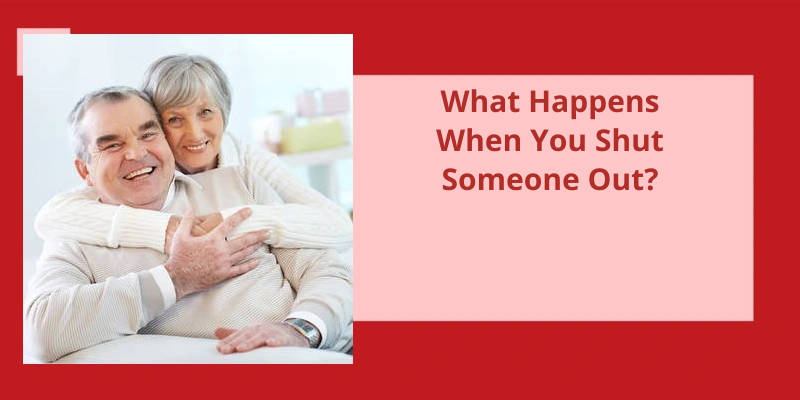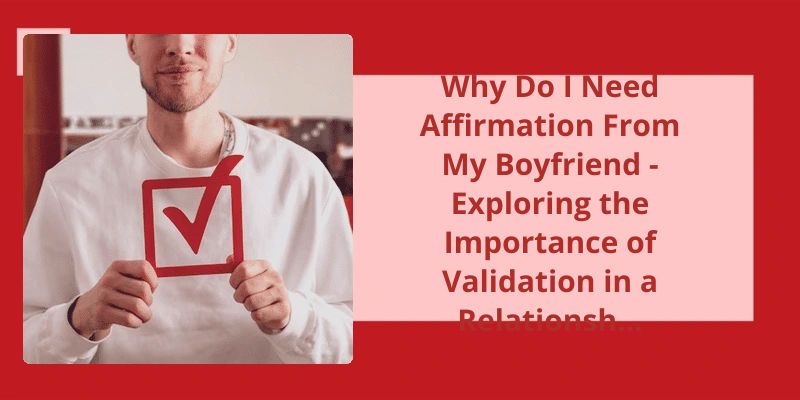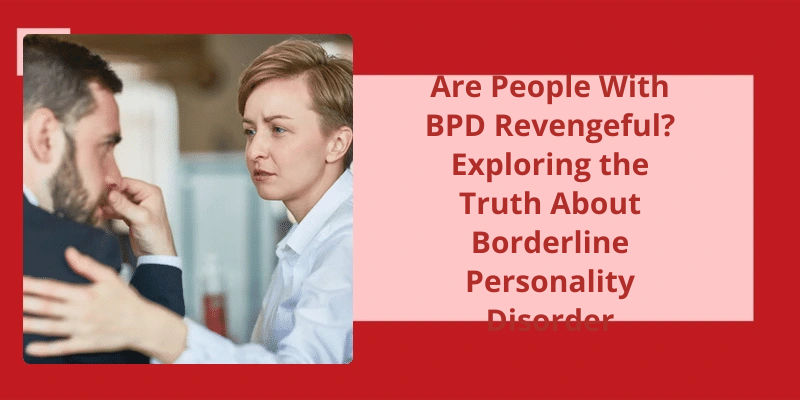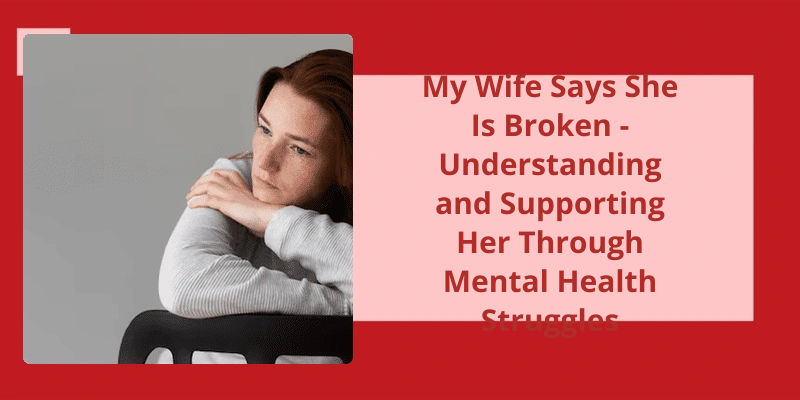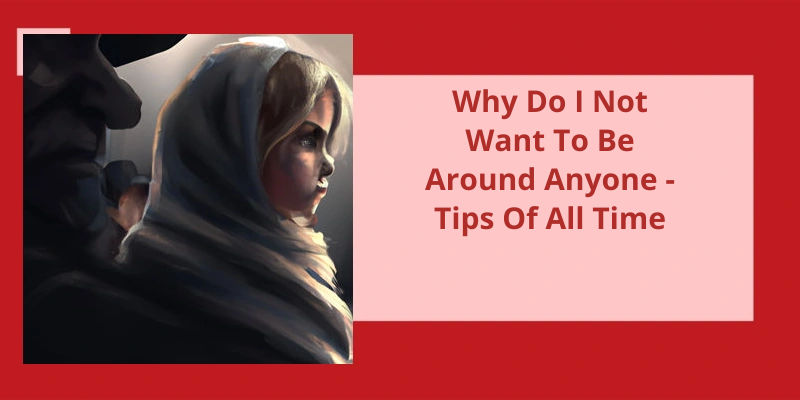When we shut someone out of our lives, we rarely consider the profound impact it can have on both parties involved. The decision to distance ourselves from someone may arise from a variety of reasons – a betrayal, a disagreement, or simply a need for solitude. Nonetheless, what unfolds when we shut someone out is a complex web of emotions, consequences, and transformations. For the person being shut out, feelings of rejection, hurt, and confusion may ensue, leaving them grappling with a sense of loss and longing for reconnection. Simultaneously, the person doing the shutting out may experience a mixed bag of emotions, ranging from guilt and relief to empowerment and self-preservation. Yet, beyond the emotional fallout lies a profound ripple effect that extends beyond the immediate individuals involved, impacting relationships, social dynamics, and personal growth. "What happens when you shut someone out?" is a question that delves into the intricate realms of human connection, emotional resilience, and the intricate dance between isolation and reconciliation. Exploring the consequences of shutting someone out can illuminate the profound significance of our actions, highlighting the importance of empathy, communication, and compassion in nurturing meaningful connections and fostering personal growth.
What Happens When You Shut People Out?
When you shut someone out, the consequences can be far-reaching and impactful on the relationship. When you shut down during intense communication, the other person may feel rejected or devalued. They may interpret your lack of response as disinterest or as a sign that you don’t care about them or what they’ve to say. This can breed feelings of hurt and confusion, as they struggle to understand why you shut them out. They may become angry or frustrated, feeling dismissed or disregarded. In some cases, they may even retaliate with their own silent treatment, further escalating the conflict and deepening the divide between you.
It hinders open and honest communication, making it difficult to address and resolve conflicts effectively. By shutting people out, you deny them the opportunity to express their feelings, thoughts, and perspectives, hindering the growth and development of the relationship. It can lead to unresolved issues and a breakdown in trust and intimacy.
It prevents authentic connection and fosters misunderstanding and resentment. To build and maintain healthy relationships, it’s essential to be open and communicative, even in difficult moments. Creating a safe space for open dialogue and active listening can foster understanding and empathy, allowing for the mutual growth and deepening of the relationship.
What to Say to Someone Who Shuts You Out?
But I’d appreciate it if we could talk about this.”. “I value our relationship and want to work through this together.”. “Im here for you, whenever youre ready to talk.”
When faced with someone who’s shutting you out, it’s important to remain calm and understanding. Instead of reacting negatively or becoming defensive, try to empathize with their feelings and let them know that you understand what they’re going through. Saying something like, “I understand youre feeling overwhelmed right now. Take your time and know that Im here for you whenever youre ready to talk,” can convey your patience and willingness to support them.
It’s also important to acknowledge that you may have contributed to the situation. Instead of blaming the other person, take responsibility for your actions or words. Saying, “Im sorry I said/did something that upset you. It was not my intention, and I’d like to apologize,” demonstrates your willingness to take ownership and mend the relationship.
Sometimes, a person may need time and space to process their emotions. Respect their need for space and suggest taking a break from the current conversation. You can say, “Lets take a breather and come back to this another time. It’s important to me that we resolve this issue, but I understand if you need some time to digest everything.”
Reassure the person that you value your relationship with them and that you’re committed to finding a resolution. Saying, “I really care about our relationship and I want to work through this with you. Lets find a way to communicate and understand each other better,” shows your genuine concern and willingness to put in the effort needed to mend the relationship.
Lastly, make sure to express that you aren’t upset or holding any grudges against them. It’s important for them to know that you aren’t seeking revenge or harboring negative feelings. Saying something like, “Im not upset with you. I just want us to find a way to talk things through and find a resolution that works for both of us,” can help ease their fears and open the door for further communication.
The Role of Empathy and Understanding in Resolving Conflicts
When resolving conflicts, empathy and understanding play crucial roles. Shutting someone out, on the other hand, is counterproductive and can worsen the situation.
Empathy involves putting oneself in the other person’s shoes, trying to understand their feelings and perspective. It allows for a deeper connection and fosters better communication. When we shut someone out, we deny ourselves the opportunity to empathize, closing the door to productive dialogue and resolution.
Understanding is equally important. It requires actively listening and acknowledging the other person’s point of view, even if we disagree. By seeking to understand their motivations and concerns, we can find common ground and potentially reconcile our differences.
When we shut someone out, we create a barrier that prevents the flow of empathy and understanding. This can escalate conflicts, breed animosity, and damage relationships. Resolving conflicts, however, requires open-mindedness and a willingness to engage with others, even when it feels challenging.
By practicing empathy and understanding, we can promote healthier and more constructive conflict resolution. Rather than shutting someone out, we can work towards finding mutual solutions, building trust, and fostering stronger connections.
Source: How Couples Can Communicate When a Partner Shuts Down
When faced with a person who tends to shut down, it’s important to approach the situation with sensitivity and patience. Giving them space allows them to process their emotions without feeling overwhelmed. Showing empathy and concern helps create a safe environment for open communication. Sometimes, offering a sincere apology, even if there’s no apparent wrongdoing, can help defuse tension and encourage dialogue. Expressing the value of effective communication to them can highlight the importance of mutual understanding. Monitoring your tone of voice ensures that your message is conveyed in a non-threatening manner. In some cases, using humor can relieve tension and help break down barriers. However, there are times when doing nothing and moving on may be the best approach, as pushing too hard can make matters worse.
How Do You Work With Someone Who Shuts Down?
When faced with someone who shuts down, it can be challenging to effectively communicate with them. However, there are steps you can take to navigate this situation. First and foremost, give them space. Understand that shutting down may be their coping mechanism, and pressuring them will only exacerbate the issue.
Next, show empathy and concern. Let them know that you genuinely care about their feelings and well-being. This helps create a safe and understanding environment for them to open up. Additionally, apologize, even if youve done nothing wrong. It’s about acknowledging their emotions and validating their experience, rather than accepting blame.
Express what it means to you to communicate effectively with them. Clearly articulate the importance of open and honest dialogue in a respectful manner. This can help them understand your perspective and may encourage them to gradually open up.
Keep in mind the tone of voice you use when communicating with them. Choose a calm and non-confrontational tone that conveys understanding and patience. This will help alleviate any potential tension and make them feel more comfortable discussing their concerns.
Utilizing humor can also be a helpful tool in breaking down barriers. Using light-hearted jokes or anecdotes can lighten the mood and create a more relaxed atmosphere for communication to flow.
Strategies for Building Trust With Someone Who Shuts Down: Discuss Ways to Slowly Build Trust With the Person, Such as Being Consistent and Reliable in Your Interactions With Them, Respecting Their Boundaries, and Showing Empathy and Understanding.
When someone shuts down, it can be challenging to navigate and rebuild trust with them. Here are some strategies to help you in this process:
1. Be consistent and reliable: One of the most crucial aspects is to show them that they can rely on you. Consistently follow through on your commitments and be there for them when they need support.
2. Respect their boundaries: It’s important to recognize and honor their need for space or privacy. Avoid pressuring them into discussing things they aren’t ready to address, and give them time to open up at their own pace.
3. Show empathy and understanding: Let them know that you understand their feelings and validate their experiences. Practice active listening and try to put yourself in their shoes to show them you genuinely care.
Building trust takes time, patience, and understanding. By implementing these strategies, you can slowly rebuild trust and establish a more open and honest relationship with the person who’s shut down.
In addition to the multitude of physiological changes that occur, shutting down emotionally can have profound effects on a person’s cognitive abilities and perceptual awareness. When individuals reach this state, their heart rates tend to soar above 100 beats per minute, indicating heightened stress and arousal. Moreover, they lose their capacity for complex reasoning, an essential component of decision-making and problem-solving. Furthermore, shutting down emotionally causes individuals to experience a narrowing of their peripheral vision, limiting their ability to gather information from their surroundings. These interrelated factors reveal the depths of impact when a person succumbs to an emotional shutdown.
What Happens When a Person Shuts Down?
When a person shuts down emotionally, it triggers a series of physiological responses that have a profound impact on their overall well-being. Research has indicated that during such instances, their heart rates tend to exceed 100 beats per minute, indicating a heightened state of arousal. This elevated heart rate can increase stress levels, further exacerbating the shutting down process. Additionally, shutting down emotionally can result in the loss of access to the prefrontal cortex, the part of the brain responsible for complex reasoning and decision-making. Without the ability to engage in rational thinking, a person may struggle to effectively communicate or find solutions to challenges they may be facing.
Furthermore, individuals who shut down emotionally often experience a narrowing of their peripheral vision. This impairment hinders their ability to perceive and understand their surroundings, leading to a sense of detachment from reality. This detachment can lead to increased feelings of isolation and emotional disconnection from others.
The consequences of shutting someone out can be far-reaching, not only impacting their emotional well-being but also their relationships with others. When individuals emotionally shut down, it becomes challenging for them to engage in open and meaningful communication. This can strain relationships and create barriers to effective problem-solving and resolution.
Understanding the reasons behind this behavior and offering a supportive and non-judgmental environment can help individuals gradually unlock their emotions and regain access to their cognitive abilities. Encouraging healthy coping mechanisms, such as seeking therapy or engaging in relaxation techniques, can also aid in the recovery process. Ultimately, addressing the issue of shutting someone out requires patience, empathy, and a willingness to foster open communication and trust.
Strategies for Supporting Someone Who Is Emotionally Shutting Down
- Offer a safe and non-judgmental space
- Listen actively and empathetically
- Avoid giving unsolicited advice
- Ask open-ended questions to encourage communication
- Show genuine concern and validate their feelings
- Respect their need for space and solitude
- Encourage self-care activities and hobbies
- Suggest seeking professional help or therapy if needed
- Avoid criticizing or blaming them
- Offer to accompany them to therapy sessions or support groups
- Keep communication lines open without pressuring them
- Educate yourself about their specific emotional needs
- Be patient and understanding
- Offer reassurance and remind them they aren’t alone
- Respect their boundaries and personal choices
- Provide resources and information about coping mechanisms
- Encourage them to express themselves through writing or art
- Help them identify triggers and find healthy coping strategies
- Be a consistent and reliable presence in their life
- Stay positive and optimistic, but avoid minimizing their emotions
Navigating relationships can be complex, especially when past trauma or negative experiences come into play. It isn’t uncommon for individuals to resort to shutting people out as a defense mechanism, avoiding potential pain, embarrassment, or exhaustion from trying to connect. However, understanding the reasons behind this behavior is crucial in order to foster healthier and more fulfilling relationships.
Is It Normal to Shut People Out?
Is it normal to shut people out? When were afraid of being hurt, embarrassed about sharing who we are, or too exhausted to try, it can be easier to shut people out. Past trauma or bad experiences complicate matters further. Sometimes, shutting someone out is a defense mechanism that our mind employs to protect itself from potential harm. It becomes a way of creating a barrier between ourselves and others, shielding us from the vulnerability that comes with opening up.
However, this pattern of shutting people out can have negative consequences on our relationships and overall well-being. By shutting others out, we deny ourselves the opportunity to form deep connections, receive support, and experience the joys of genuine human interaction. It can lead to feelings of isolation, loneliness, and a sense of detachment from the world around us. Shutting people out can also perpetuate a cycle of missed opportunities for growth and personal development, as we close ourselves off from new perspectives and experiences.
Understanding the Root Causes of Shutting People Out: This Topic Could Dive Deeper Into the Underlying Reasons Why Individuals Shut Others Out, Such as Fear of Vulnerability, Past Traumas, Social Conditioning, or Low Self-Esteem.
Shutting someone out can be a complex behavior influenced by various factors. One common root cause is the fear of vulnerability, as individuals may feel exposed or threatened by emotional intimacy. Past traumas can also play a role, as they may lead to defensive mechanisms that involve pushing people away. Social conditioning can contribute too, as societal norms or cultural expectations may discourage emotional openness. Additionally, low self-esteem can make it difficult for individuals to connect with others and may result in them shutting people out as a defense mechanism. Understanding these underlying causes can help foster empathy and compassion when faced with someone who’s shutting others out.
When we shut down emotionally, our ability to recognize and understand the emotions of others diminishes. This loss of empathy can strain our relationships and make it difficult to connect with others on a deeper level. Moreover, our emotional detachment may lead to a lack of compassion and understanding towards those going through difficult times. It’s crucial to acknowledge the consequences of shutting down emotionally and seek ways to reconnect with our emotions for our own well-being and the well-being of those around us.
What Happens When You Shut Down Emotionally?
When we shut down emotionally, we put up walls around our hearts, barricading ourselves from feeling any pain or vulnerability. In doing so, we become detached from our own emotions and lose the ability to connect with others on a deeper level. This lack of emotional engagement can lead to a host of negative consequences.
Empathy relies on our ability to relate to and understand the emotions of others. As a result, we become less empathetic and find it difficult to comprehend the impact of our actions on others.
It can leave us vulnerable to harm and unaware of our own pain, while also hindering our ability to empathize with and connect with those around us.
Conclusion
In conclusion, shutting someone out can have significant, lasting effects on both parties involved. It creates a barrier that hinders communication, understanding, and trust within a relationship. The person who’s shut out may experience feelings of rejection, isolation, and emotional distress, while the one doing the shutting out may struggle with guilt, sadness, and a fractured sense of connection.

